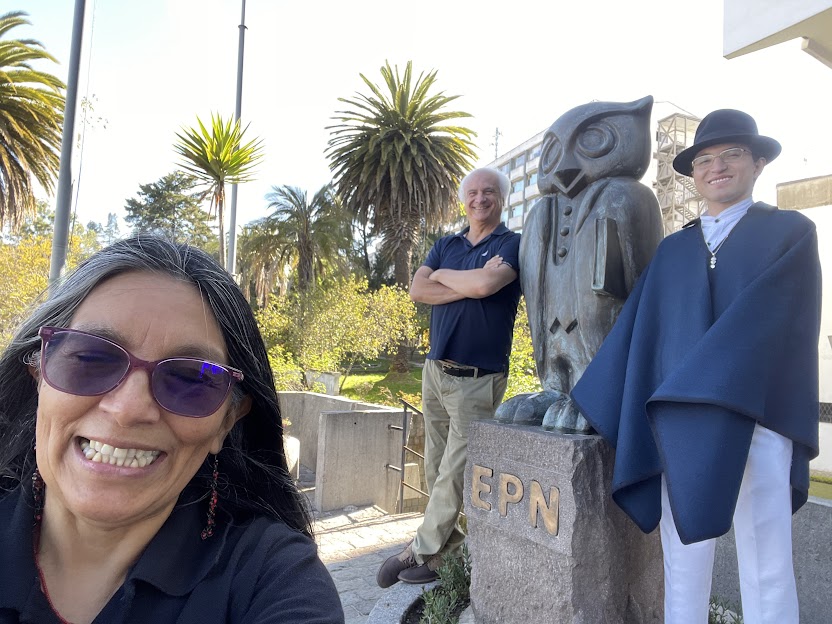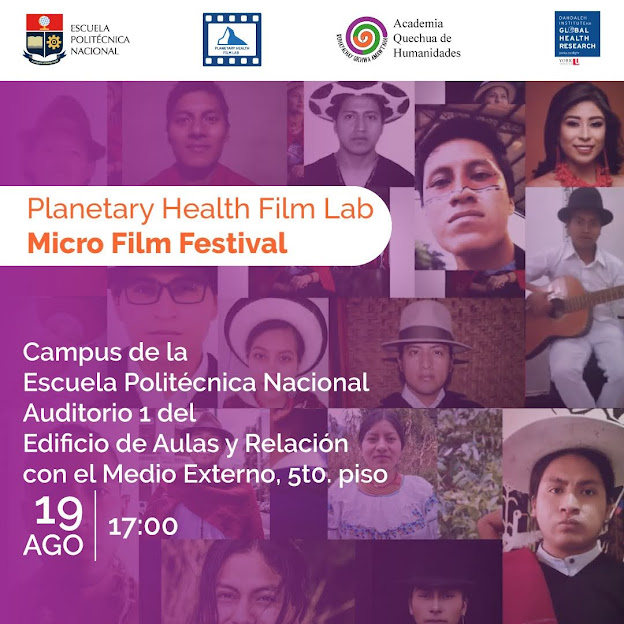
Fifteen unique films created by Indigenous youth from Ecuador will be screened at a special film festival on Aug. 19. The films are the result of an international program out of York University that spotlights planetary health issues.
The Dahdaleh Institute for Global Health Research at York University is presenting a special film festival on Aug. 19 to mark the completion of the 2022 edition of the Planetary Health Film Lab (PHFL). The Micro Film Festival will take place online from 6 to 8 p.m. This event if free and open to the public. All are welcome.
Now in its third year, this summer the 2022 PHFL is working with 15 Indigenous youth from Ecuador. Many of the participants have never operated a camera and for some, this will be the first time they have left their home communities. The group will gather in Quito, Ecuador’s capital, from Aug. 15 to 18 for a workshop led by the award-winning documentary filmmaker Mark Terry, who is also a researcher with the Dahdaleh Institute and an adjunct professor at York University.

In the months leading up to this year’s workshop, the participants have adopted the role of filmmakers. They have been busy conducting research, filming interviews with elders from their communities and collecting footage of landscapes and wildlife for their films. They will then spend the workshop attending lectures delivered by local and international experts in the fields of planetary health, filmmaking, Indigenous studies, youth studies, the United Nations (UN) and participatory storytelling techniques to inform and influence UN policymakers. Each afternoon, the participants will have access to a post-production laboratory at the Escuela Politécnica Nacional (EPN) in Quito, a partner university in this year’s PHFL, where they will work on completing their films. (EPN's website for the event can be viewed here. )English subtitles for the films will be developed in partnership with the Quechua Academy of Humanities, an affiliate of the EPN and a PHFL partner. Experts from the Quechua Academy of Humanities will work with the participants in their native languages of Kichwa and Shuar to ensure all films receive accurate translation for the subtitles.
As 2022 is the first year of the UN’s International Decade of Indigenous Languages, all 15 films will also be showcased at a special event at the UN Climate Change Conference, COP27, taking place this November in Sharm El-Sheik, Egypt.

The PHFL is an international program that began in 2019, bringing youth from Italy, India, Australia, Ecuador, Colombia and Canada to York University’s Keele Campus for a series of workshops and training sessions in environmental documentary filmmaking to showcase planetary health issues in their respective communities. The following year, in the midst of the pandemic, a remote version of the PHFL took place with Indigenous youth from the Circumpolar Arctic. All the films were then showcased at a micro film festival to wrap up the program. The festivals are open to the public and often the first time the young filmmakers have the opportunity to present their work to the world. For even broader impact, the films are then submitted to the United Nations Framework Convention on Climate Change’s (UNFCCC) Youth Climate Report, and upon approval, added to the UNFCCC’s GIS database of documentaries and presented at the annual COP conferences.
“By amplifying the voices of youth and of Indigenous Peoples throughout the world, representation of these groups and their planetary health issues are getting noticed and addressed at the UN’s annual climate summits even more now than in previous years,” says Terry.
“The tools provided by the PHFL program empower participants not only to make films about planetary health issues in their communities and share them with UN delegates but, crucially, to share these techniques and approaches with other youth in their home communities long after the program ends,” adds Terry. “In one case, a PHFL participant in Australia used the skills he learned in the PHFL to open his own film production company specifically to make environmental documentaries for those in power.”
Co-leading the 2022 edition of the PHFL are: Dr. James Orbinski, a physician and the director of the Dahdaleh Institute; Professor Kate Tilleczek, Canada Research Chair in Youth, Education & Global Good in the Faculty of Education at York; and Deborah MacDonald, senior research associate and manager of the Young Lives Research Lab at York University, with Sandra "Kushi Rimay" Sanchez-Gordon, a researcher and professor at Escuela Politécnica Nacional, and Arawi Ruiz, the director of the Quechua Academy of Humanities.
A lifechanging and inspiring event, register now for the Aug.19 Micro Film Festival.
Watch the promotional video (below) that was co-created by the PHFL participants.
